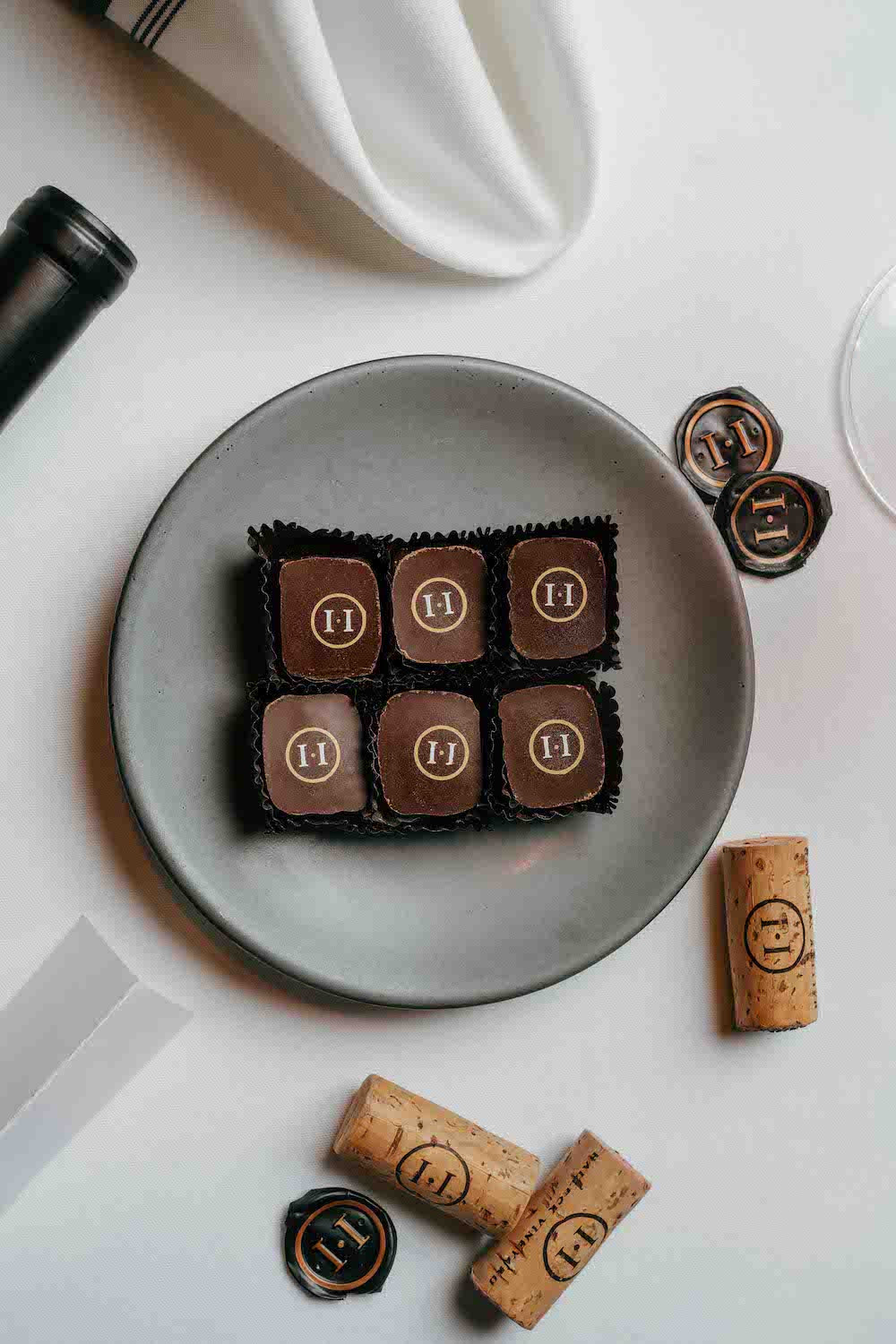Breathtaking Views From Sonoma Wineries - Enjoying Wine In Sebastopol
Wine tasting is an art that requires practice and an understanding of various features concerned in the course of. One essential element of wine tasting is the development and interpretation of tasting notes, which serve as a guide for both novices and seasoned connoisseurs. A Guide To Understanding Winery Wine Tasting Notes can improve your wine-tasting experience, making it more meaningful and pleasant.

Tasting notes are concise descriptions that capture the essence of a wine’s flavors, aromas, and general character. Normally composed by professional tasters, winery tasting notes offer insights into the nuances of various wines. They might help wine enthusiasts understand what to anticipate from a particular bottle. Nevertheless, tasting notes can differ widely in style and element based on the author's experience and palate.
Wineries Promoting Wine Club Memberships - Sonoma Vineyard Tours
When you first approach a glass of wine, your senses will start to interact immediately. The sight, scent, and taste of the wine will converge to provide you a complete experience. Tasting notes generally start with the visual evaluation, where the color of the wine is taken into consideration. Shade plays a significant function in indicating the wine’s age, grape variety, and even its flavor profile.
After assessing the visible aspect, the next step entails swirling the wine in the glass. This motion aerates the wine, permitting its aromas to awaken. Smelling the wine supplies critical perception into its complexity. The initial sniff can deliver a flood of scents which will include fruity, floral, herbal, or earthy notes. This is often the most subjective a part of tasting, as individual experiences can dramatically differ.
In winery tasting notes, descriptors are often categorized into main, secondary, and tertiary aromas. Main aromas usually stem from the grape variety, secondary aromas derive from fermentation processes, and tertiary aromas arise from getting older. Understanding these categories might help you recognize the depth of a wine, they usually additionally give you the vocabulary to precise your experience higher.
Small Batch Wineries In Sonoma Valley - Sonoma Valley Vineyards And Wine Tasting
Following the olfactory encounter, your focus will shift to the taste of the wine. This is where the primary characteristics—sweetness, acidity, tannins, alcohol—come into play. Tasting notes usually detail these flavors in multiple dimensions, including the initial attack on your palate to the lingering finish on your tongue. A high-quality wine will current a harmonious steadiness between these factors.
Whereas tasting, it's essential to ponder the body of the wine, which can be described as light, medium, or full. The physique contributes significantly to your total impression, helping you consider how the wine pairs with food or whether or not it stands alone as a sipping wine. Balancing the physique with the opposite traits will give you a fuller understanding of what the wine has to offer.
The finish of the wine, additionally known as the aftertaste, is one other important facet typically included in tasting notes. A lengthy, nice finish often signifies the next quality wine, while a short or cloying aftertaste may recommend otherwise. Evaluating the end can offer further perception into the wine's complexity and distinction.
Understanding the context of winery tasting notes is also useful. Tasting notes can provide contextual details about the winery's location, climate, and grape-growing practices. This context adds another layer of appreciation for the wine, permitting enthusiasts to attach the sensory experience with its origins, thus enhancing the enjoyment additional.
Intimate Wine Tasting Experiences In Sonoma - Unique Wine Tasting Experiences In Sebastopol
Many wineries provide tasting notes on their web sites or labels, typically written in an approachable yet informative style. Nevertheless, not all winery tasting notes are created equal. Some could additionally be overly technical, whereas others may prioritize advertising aptitude over insightful evaluation. Studying to navigate these notes can arm you with the knowledge to make informed choices when choosing wines.
Taking Part in tastings at wineries also can deepen your understanding of wine tasting notes. Interacting with knowledgeable workers can give you a more hands-on method to exploring totally different wines and the language used to describe them. Wineries With Live Music Events Occasionally. You Will have the chance to ask questions, have interaction in discussions, and potentially refine your palate in real time.
Experimentation is essential for mastering wine tasting notes. As you sample different wines, try making your own notes. Focus on describing the wine’s colour, aroma, taste, and end. Over time, you’ll develop a personal vocabulary that resonates with your sensory experiences. Every note you create will help refine your palate, allowing you to understand wines at a deeper level.
Wineries That Host Harvest Festivals - Vineyards Near Sebastopol
In conclusion, a Guide To Understanding Winery Wine Tasting Notes offers a complete framework for diving into the world of wines. It equips you with the strategies and language essential to articulate your experiences. Whether Or Not you're a informal drinker or a dedicated aficionado, understanding and utilizing tasting notes can profoundly impact your wine journey. This data not only enhances your enjoyment but in addition connects you deeply with the wealthy narratives every bottle tells. By embracing this journey, you turn into a part of the gorgeous mosaic of wine culture, where every sip unveils a brand new story waiting to be discovered.
- Wine tasting notes sometimes encompass a selection of sensory descriptions, together with aroma, flavor, acidity, physique, and end, allowing tasters to completely appreciate the wine's characteristics.
- To enhance your understanding, familiarize yourself with common wine terminology such as "tannins," "oakiness," or "terroir," which can help decipher the notes extra effectively.
- A systematic approach to tasting involves first visually assessing the wine's color and readability, followed by swirling to launch aromas, then inhaling and describing what you experience.
- Taking notes throughout tasting might help identify patterns over time, bettering your palate and making it easier to recall preferences for future choices.
- Don't overlook the affect of food pairings; tasting notes can differ greatly when a wine is loved with complementary flavors, altering notion and delight.
- Pay attention to the wine’s vintage, as weather conditions in a given 12 months can considerably have an result on the ultimate product, including one other layer to the tasting notes.
- Consider the winemaker's style and philosophy, which may shape the wine's profile and impact how its notes evolve with each sip.
- Training with totally different grape varieties can broaden your vocabulary; each sort brings unique characteristics that can enhance your capability to articulate tasting notes effectively.
- Engaging with wine professionals or attending tasting events can provide priceless insights, providing a richer context for understanding personal tasting notes.
- Remember that tasting is subjective; individual preferences and experiences will form one’s interpretation of the identical wine, enriching the general enjoyment of wine exploration.
What are wine tasting notes?
Wine tasting notes are descriptive comments made by tasters in more helpful hints regards to the appearance, aroma, style, and finish of a wine. They present an summary of the wine's traits and might help consumers perceive the style and quality of the wine.
Wineries With Outdoor Seating - Wine Tasting At Sonoma Vineyards
Why are tasting notes necessary when deciding on wine?
Tasting notes can guide you in selecting a wine that suits your palate. They provide insights into flavors and aromas, serving to you to match wines with food or occasions. Understanding these notes enhances your total wine experience.
How should I read wine tasting notes?
(Wineries With River Views)
Celebrated Winemakers To Discover In Sonoma - Sonoma Vineyards To Explore

When studying wine tasting notes, take note of the structure: look for descriptions of colour, aroma, flavor, and finish. This will assist you to grasp the wine's profile and decide if it aligns together with your preferences.
What phrases commonly seem in wine tasting notes?
Common phrases embrace "tannin" (the structure), "acidity" (the crispness), "physique" (the weight), and varied flavor descriptors like "fruity," "earthy," or "spicy." Familiarizing yourself with these phrases can deepen your understanding of wine.
Wine Tasting Trails In Sonoma Valley - Wineries For Casual Tastings In Sonoma
Am I Able To create my very own tasting notes?
Yes! Writing your individual tasting notes can improve your wine tasting experience. Focus in your observations of taste, aroma, and other sensory characteristics. This personal practice can help you refine your palate over time.
How do I identify the aromas in wine tasting notes?
Wineries With Breathtaking Gardens In Sonoma - Sonoma Wine Culture
To identify aromas, practice smelling a variety of scents and associating them with wines. Swirl the wine in your glass to release its aromas, then take a moment to breathe in deeply earlier than figuring out any distinguished scents.
What is the difference between professional and private wine tasting notes?
Professional tasting notes could use more technical language and particular terminology, whereas personal tasting notes are subjective and reflect individual experiences. Each are valuable for understanding and enjoying wine, however personal notes could resonate extra with your distinctive tastes.
How can tasting notes enhance my wine appreciation?
Quaint Wineries In Picturesque Settings In Sebastopol - Vineyards Near Sebastopol
Tasting notes can improve your appreciation by helping you to know and articulate the complexities of wine. They encourage aware tasting and provide i loved this a framework for comparing different wines, leading to a richer enjoyment of the beverage.
Are there any apps or instruments to assist with wine tasting notes?
Sure, there are a number of apps designed to help users record and manage their tasting notes. These instruments typically supply features like flavor wheel guides and wine database searches, making it simpler to trace your journey via totally different wines.